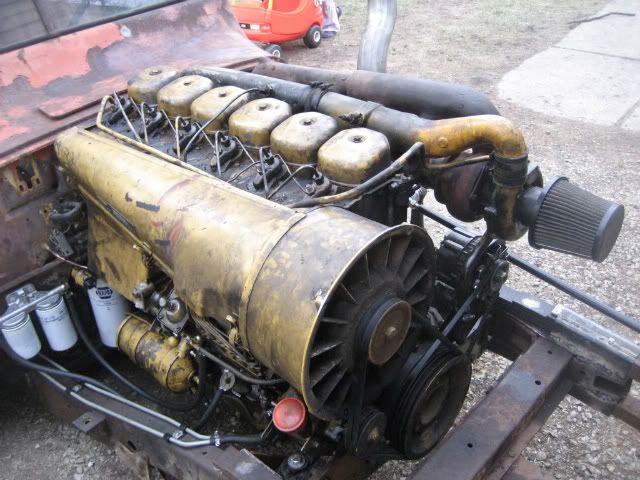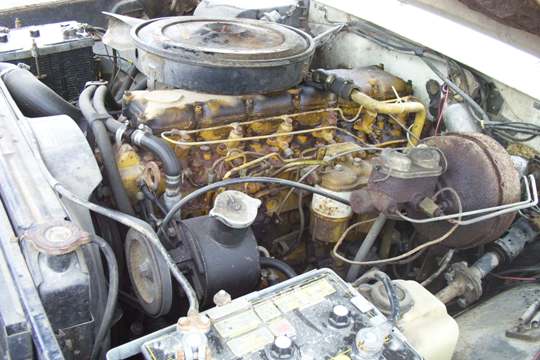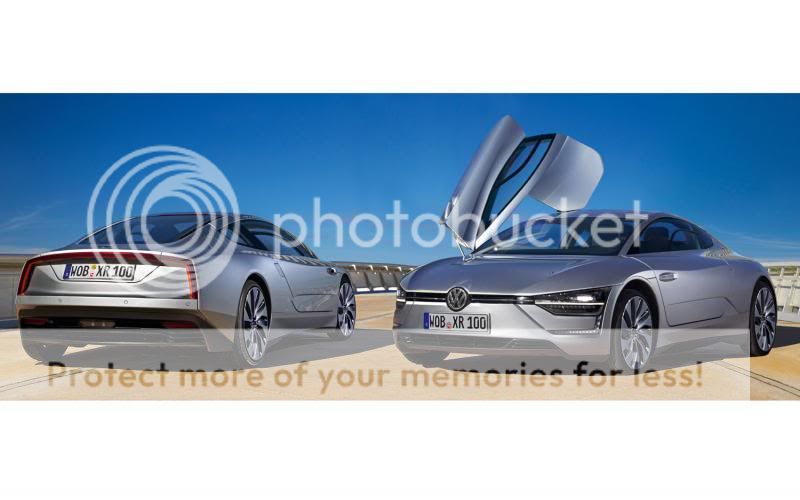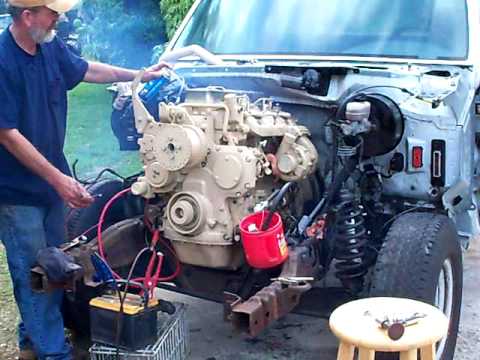eDJ_
Well-known member
Many years ago when my Dad had his Class C he was looking into swapping out the gasoline engine to replace it with a 5 cyl German Deutz Air Cooled Diesel. We were living in the North Carolina area then and the diesel would have made better sense fuel mileage and durability wise. Dad found a company that would do
the install but wouldn't undertake to set up the heating system. That would be left to the owner.
Since then I met a retired gentleman who modified a Chevy 3/4 ton pick up with a home built cap on the back
that he could stand up in. He was a full timer who had been a Semi Driver all his life. He told me that he had
pulled the gasoline engine and replaced it with a Perkins Diesel and was getting great fuel mileage now with an engine that would probably out last him. He showed me how he had set the engine back 16 inches and used a
5 speed transmission. He explained he got the idea for the Perkins from fishermen in Louisiana who were using
them and getting better results than what most of the other fishermen were getting with their diesel engine choices. Perkins are custom built to the application he told me.
I've been giving this consideration should I need to replace the engine in my outfit. If these inline Diesel's could even get close to 40 mpg, offer more room for periodic maintenance, and last for years dependably
I'm wondering if it would be worth it. I'm thinking I favor the Perkins Diesel from the UK.
Videos as follows.
Deutz Air Diesel installs
Deutz 5 cyl

63 Ford pick up with Perkins install
Perkins

The merits of Diesel conversions Shade Tree Conversions Video 1, 2, 3
I would add that the Diesel may not be a good cold climate choice. Although one could tour
in the warmer states during the winter months and go north in the summer when it heats up
in the south.
Has anyone here considered a Diesel retro fit when they start their project.
the install but wouldn't undertake to set up the heating system. That would be left to the owner.
Since then I met a retired gentleman who modified a Chevy 3/4 ton pick up with a home built cap on the back
that he could stand up in. He was a full timer who had been a Semi Driver all his life. He told me that he had
pulled the gasoline engine and replaced it with a Perkins Diesel and was getting great fuel mileage now with an engine that would probably out last him. He showed me how he had set the engine back 16 inches and used a
5 speed transmission. He explained he got the idea for the Perkins from fishermen in Louisiana who were using
them and getting better results than what most of the other fishermen were getting with their diesel engine choices. Perkins are custom built to the application he told me.
I've been giving this consideration should I need to replace the engine in my outfit. If these inline Diesel's could even get close to 40 mpg, offer more room for periodic maintenance, and last for years dependably
I'm wondering if it would be worth it. I'm thinking I favor the Perkins Diesel from the UK.
Videos as follows.
Deutz Air Diesel installs
Deutz 5 cyl

63 Ford pick up with Perkins install
Perkins

The merits of Diesel conversions Shade Tree Conversions Video 1, 2, 3
I would add that the Diesel may not be a good cold climate choice. Although one could tour
in the warmer states during the winter months and go north in the summer when it heats up
in the south.
Has anyone here considered a Diesel retro fit when they start their project.








